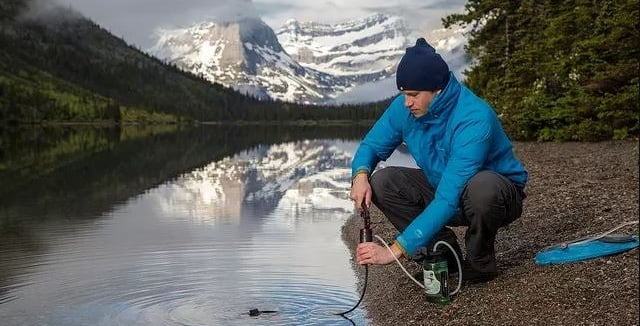Secure Your Future: A Guide on How to Get Started Storing Water Long Term
Having a reliable long-term water storage plan can be a lifesaver.


As we said previously in the article about storing food, uncertainties abound and being prepared for the unexpected is not just a choice but a necessity. Water, the elixir of life, is one of the fundamental resources we often take for granted until it's no longer readily available. Whether it's a natural disaster, infrastructure breakdown, or unforeseen emergencies, having a reliable long-term water storage plan can be a lifesaver. In this article, we'll explore the importance of long-term water storage and provide a comprehensive guide on how to get started.
Why Long-Term Water Storage Matters
Water is essential for survival, and ensuring access to clean water during emergencies is paramount. Here's why long-term water storage matters:
Resilience in Emergencies: Natural disasters like earthquakes, hurricanes, or floods can disrupt water supply systems. Having stored water ensures you have a reliable source during such crises.
Health and Hygiene: Clean water is crucial for drinking, cooking, and maintaining hygiene. Long-term storage helps safeguard against contamination or pollution of water sources.
Self-Sufficiency: Relying solely on municipal water sources leaves you vulnerable. Long-term storage empowers you to be self-sufficient and less dependent on external resources.
How to Get Started
1. Assess Your Needs: Before you begin storing water, assess your household's water needs. Consider factors such as the number of people, pets, and any specific medical or hygiene requirements.
2. Calculate Water Requirements: The general rule of thumb is to store at least one gallon of water per person per day for drinking and sanitation. However, individual needs may vary based on climate, health conditions, and activity levels.
3. Choose Appropriate Containers: Select food-grade containers designed for long-term water storage. Options include BPA-free plastic containers, glass bottles, or purpose-built water storage barrels. Ensure containers are clean, sanitized, and airtight to prevent contamination. Try to avoid clear containers to reduce the chance of bacterial growth inside of the container.
4. Treat Water for Long-Term Storage: To prevent microbial growth and ensure water remains safe to drink, treat it before storage. Options include chlorine bleach, water purification tablets, or commercially available water treatment products. Follow recommended dosages and procedures carefully.
5. Rotate Stored Water Regularly: Water stored for long periods can develop a stale taste or become contaminated. Rotate stored water every six months to maintain freshness and quality. Use the older water for non-potable purposes like cleaning or watering plants, then refill with fresh water.
6. Store Water Properly: Store water in a cool, dark place away from direct sunlight and chemicals. Basements, closets, or dedicated storage rooms are ideal locations. Ensure containers are elevated off the ground to prevent contact with potential contaminants.
7. Consider Alternative Water Sources: In addition to stored water, explore alternative water sources such as rainwater harvesting, well water, or portable water filtration systems. Diversifying water sources enhances resilience and ensures redundancy in case of emergencies.
8. Educate Household Members: Ensure everyone in your household understands the importance of long-term water storage and knows how to access and use stored water safely. Conduct regular drills or discussions to reinforce emergency preparedness measures.
Conclusion
Long-term water storage is not just a precaution; it's a vital component of emergency preparedness. By taking proactive steps to store water effectively, you can safeguard your household against unforeseen challenges and ensure access to clean water when it matters most. Remember, preparation today can make all the difference tomorrow. Stay informed, stay prepared, and stay hydrated. Prepare, Survive, Thrive.